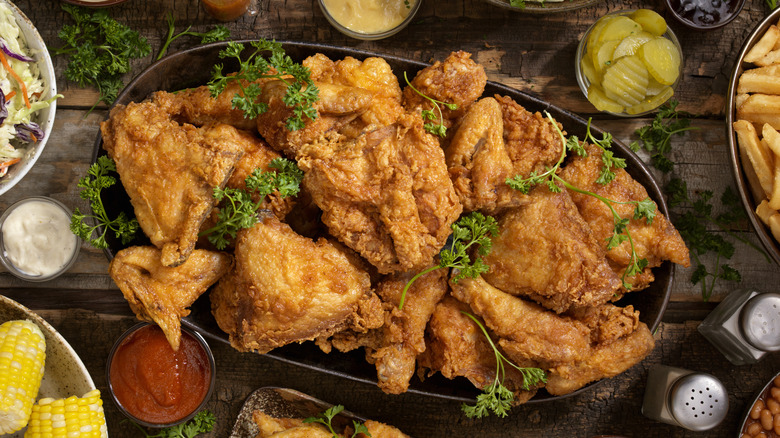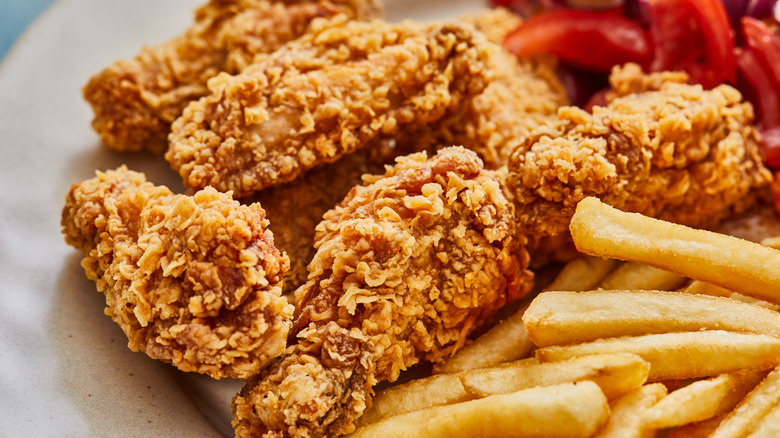Why Your Fried Chicken Turned Out Bland
Fried chicken is a work of art. It's simple in a sense, but nailing every aspect of flavor, texture, and balance is a craft that people can spend years perfecting. It should be crispy on the outside yet not dried out in the slightest. It should have the perfect coating-to-meat ratio. It should feel like fried chicken without being overly greasy. And, of course, it should have the right amount of salt. If you're fried chicken turned out bland, you likely didn't add enough. The trick to getting the most flavor from this dish: Use about 1 teaspoon of kosher salt for every 1 cup of flour.
Salt is one of the most important elements of cooking, but you have to know when and how much to use. "Season food with the proper amount of salt at the proper moment," Samin Nostrat wrote in "Salt, Fat, Acid, Heat." Those 12 words will change the way you make any dish — including classic Southern fried chicken. Besides just using salt in the flour mixture, you can incorporate it in other ways, too, such as brining the chicken before frying it.
Fried chicken will be bland without enough salt
When it comes to cooking meat, salting it at the right time is essential. Prior to cooking, you should brine the chicken in salted water for up to one hour (you can also use buttermilk, but some chefs swear by water for keeping that breading attached to the chicken at all times). This allows the salt to absorb into the chicken, meaning that flavor builds not only in the coating but also throughout the meat. Brining helps keep the chicken moist as well.
Salt plays a crucial role in the crispy coating, too. Kosher salt is best here; it absorbs better than table salt and sticks to the chicken better. Stick to that salt-to-flour ratio; don't add less. You can add a little more because some salt will disappear in the oil during the frying process, but make sure not to over-salt the chicken to the point where it becomes inedible. That's why perfecting your fried chicken recipe often takes a little bit of trial and error.
You should add salt at different times while cooking
Don't add salt once; it should be added multiple times throughout the cooking process. You know the chicken absorbs the salt from the brine before it cooks, and its salty coating helps build flavor during the cooking process. But finally, you should season the chicken with kosher salt the moment it comes out of the oil; it's the final flavor touch the dish needs. Add it as soon as you remove the chicken because the oil and heat will help it absorb quickly.
While salt is the most important, it doesn't need to be the only thing that gives the chicken flavor. Other seasonings added to your coating, such as garlic powder or even some cayenne or chili powder, will enhance the dish, too. Used sparingly, cayenne adds a hint of flavor without making the chicken spicy. And for a surprising flavor twist, don't just add salt after removing your chicken from the fryer — add a touch of brown sugar, too. It will melt right into the coating, leaving the chicken with the smallest hint of sweetness to balance out that savory goodness.


